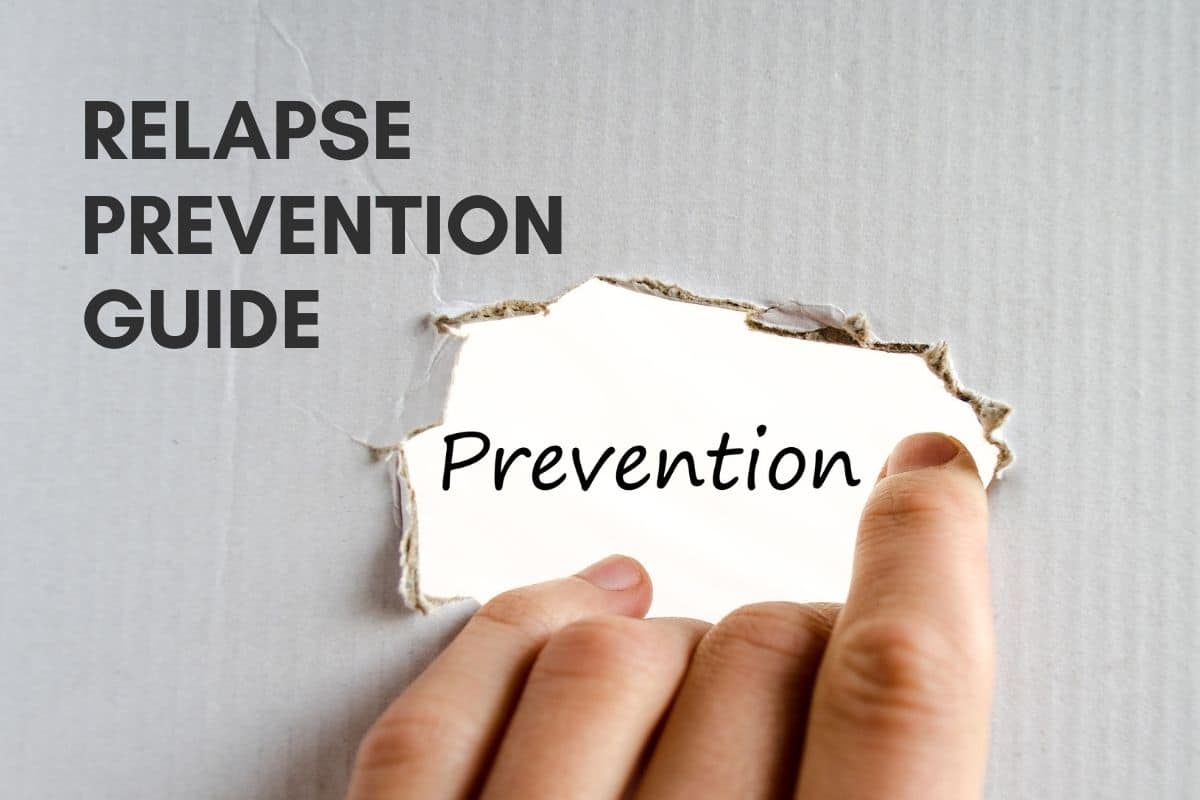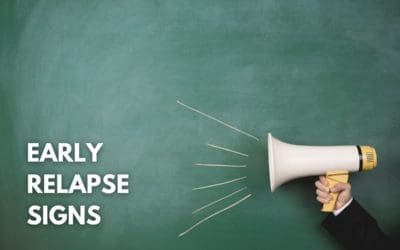Addiction is hard. The stigma of shame that comes along with it is real, and while finding the right treatment is one of the most difficult steps to take towards recovery is the possibility of relapse. Many feel as though they are weak in the recovery process, and giving up to use is incredibly tempting. The most important thing is to help those who feel weak to understand that temptations are normal, and they don’t make anyone any less of who they are.
Learning from one’s mistakes and evaluating their experiences is the best of tools to help prevent slipping on the slope of addiction. What seems like failures are perfect opportunities to learn more than you would have had you not made the mistake in the first place.
Why Do People Relapse?
There’s so much shame in the culture surrounding the concept of failure – this feeling of unworthiness. Failure, however, is inevitable. Accepting the realities of addiction helps one come to peace with their shortcomings. Relapse is normal in addiction treatment, and half of all those who are recovering experience relapse, feelings of weakness that lead one to revisit drug or alcohol use. This, however, is not to say that relapse is unavoidable. When you can recognize the signs, opportunities present themselves to help those who are struggling.
Some signs that may suggest someone could potentially relapse may include the following:
- When recovery doesn’t seem important: Relapsing is a harsh reality of recovery, and if one is not committed to achieving stability when it comes to their substance abuse, relapse is more likely to occur. There are many methods of care available for those who struggle. For example, twelve-step meetings or therapy are great places to start.
- Lack of support from others: One of the reasons inpatient treatment, twelve-step programs, and therapy are successful is because of the support surrounding those who participate; what happens when patients leave and have no support? Accountability and encouragement are everything when it comes to a successful recovery.
- Recovering for someone else: Most times those who struggle with addiction seek treatment due in large part to the intervention of loved ones. Sometimes, those who struggle to recognize on their own how their actions are affecting others. It can be difficult when people expect so much from you and all you want to do is please them; if someone hasn’t made up their mind concerning addiction, chances are they will relapse.
- Unpreparedness for life outside of rehab: One of the more difficult parts of recovery is the transition from the treatment facility to the outside world. Although it may seem like overkill, having a plan for leaving treatment is a crucial step in rehab. Many situations can tear down everything someone has built-in recovery. Some of these include old, toxic relationships, financial difficulties, or even unexpected family tragedies.
What to Do After a Relapse
The only thing more frustrating than deciding whether or not to go to treatment the first time is deciding whether or not to do so after a relapse. Several factors go into that decision, one of them being whether or not the relapse was an isolated incident. When someone is all in on following through on their recovery experience and still relapses, it could be considered isolated, in which case further rehab would not be necessary.
In direct contrast to isolated incidents, if one relapses and continues in their substance abuse, it would be best to seek treatment again. Sometimes this could happen because of others encouraging someone to drink even though you’ve been to recovery and are now sober. In these circumstances, it is imperative to remember that failure may be necessary to succeed.
What Happens When I Return to Treatment?
Returning to rehab may seem frightening. It may feel like when you were younger and had your first day of fourth grade. You’d already been to third grade, but something felt… scarier. This time, patients may start with the meat and potatoes of addiction treatment: therapy.
Therapy has been known to be rather successful in the area of substance abuse treatment. Many forms of therapy work better than others. For example, someone who returns after a relapse may participate in cognitive behavioral therapy, which is a technique that focuses on evaluating one’s thought process to help them reset their perspective as it pertains to some distorted thought processes.
There are many other forms of addiction treatment that are more holistic methods of rehab. Some of these include the following:
- Music therapy
- Art therapy
- Yoga
- Physical exercise
Holistic methods are used in hopes that patients will take these techniques with them when they leave therapy. This way, they are equipped with tools to combat depression, anxiety, or even urges to abuse drugs or alcohol.
Transitioning back into a sober lifestyle is not an easy thing to do after having been in treatment for some time. Some options such as sober-living environments are available to those who are having trouble adjusting to life outside the facility. Treatment for substance abuse should not stop after one leaves the facility. Instead, one should have a plan for when the time comes to move on from rehab.
Picking Yourself Back Up
When patients end up relapsing, the immediate thought process is that they failed, but just because someone relapses doesn’t make them a failure. Sometimes, the treatment needs to be re-evaluated. Part of recovery is that sometimes it is a trial and error process. Cravings are a natural human response to the body’s desire for something.
Relapse has the potential to make someone’s addiction worse than it’s ever been. This is partly why those who do relapse feel incredibly guilty. For all the effort someone puts into pursuing a life of sobriety, it is discouraging when relapse happens. Once they become discouraged, it’s difficult not to give in to their old habits. These habits were an escape before, and they have the potential to do so again.
Rehab is hard enough without having to do it twice, so why didn’t the first time work? Nobody wants to have to start over; it’s frustrating and agonizing. However, going back can save one’s life. In a way, it’s not a failure more than it’s a discovery. Realizing your treatment journey isn’t over is a tease, sure, but to go back will strengthen you even more. It takes an immense amount of courage to pick oneself up even the first time, but to do it again is arguably heroic.
Humans, when they learn to walk, fall. They fall countless times. For some reason, however, instinctually they get back up. We fall so that we can learn to rise and stand tall in our success. Most often, someone’s second time in rehab produces more commitment than their initial tenure. The best chance of succeeding than someone who has experienced a relapse has is going back to rehab. This is the best chance at recovery that lasts a lifetime.
The Impact of Outpatient Plans After Treatment
To evaluate whether or not outpatient treatment is the right move, one must first evaluate their recovery needs. When it comes to finishing treatment, some may need help even after they’ve completed residential substance abuse rehab. Outpatient treatment is known to work well for those with mild cases of addiction. To others, outpatient care is necessary for the next step in their recovery journey. This allows those who participate to increase their chances of success.
Even though the length of time depends largely on an individual’s needs, outpatient programs usually last anywhere from three months to over one year. This method of treatment provides those who participate in 10-12 hours of weekly access to professional therapists and psychiatrists. This method of care is one of the more convenient of the rest due in large part to the fact that patients reside in the comfort of their own homes with minimal disruption to their daily lives. Weekly treatment keeps them accountable and is a good transition back into the world outside of treatment.
As far as whether or not outpatient treatment is more or less successful always depends on the individual. Accepting the reality of their addiction is difficult, and sometimes a milder method of treatment seems unnecessary. It is imperative, however, that they understand they need help. Substance abuse rehab works best when it is fitted to the individual rather than using a one-size-fits-all method. This makes their success more personally gratifying.
Break Free from the Chains of Addiction
Suffering from addiction is not easy. Having already gone through treatment, thinking the process to be a success, relapse is a harsh reality for many. At The Freedom Center, we want to equip every patient with the right tools to succeed in the world outside the treatment facility, whether they’re new to the recovery process or have experienced a relapse. If you or a loved one are suffering from a relapse and want to know the next steps to take, you can contact us here.

































